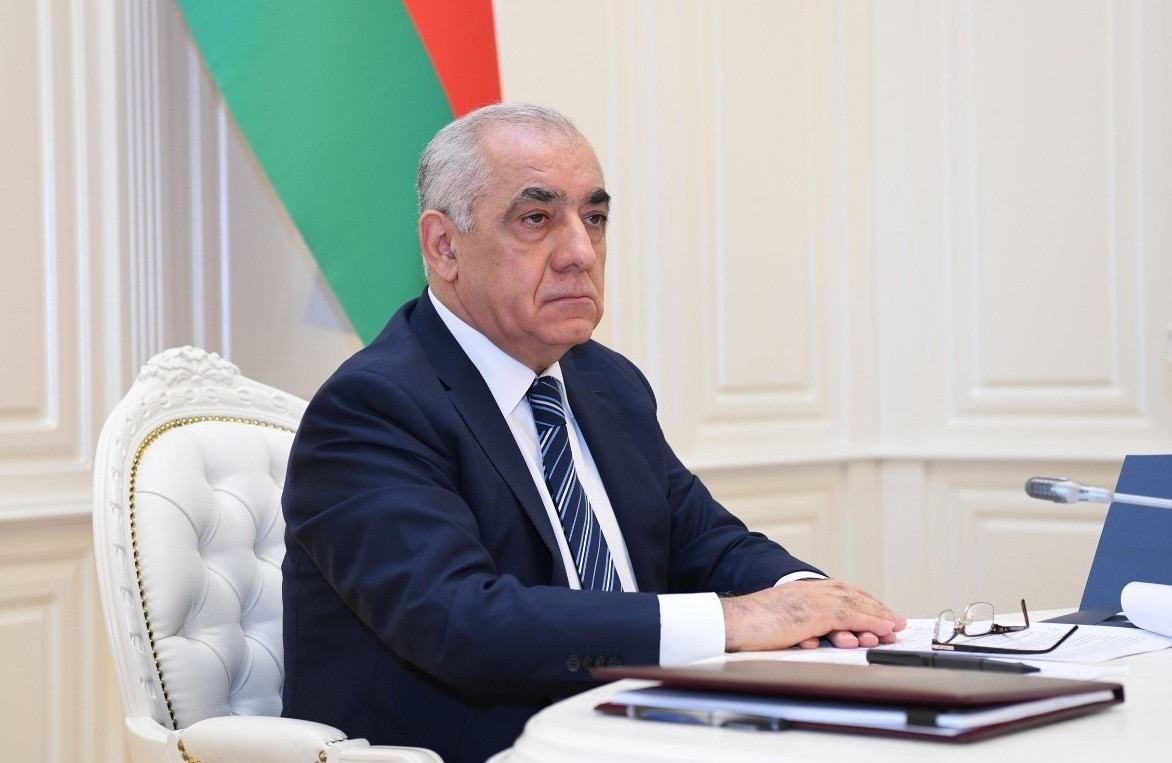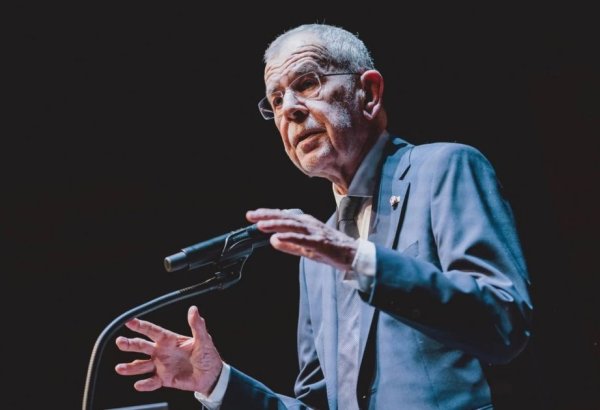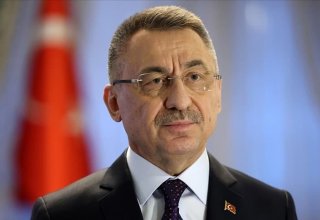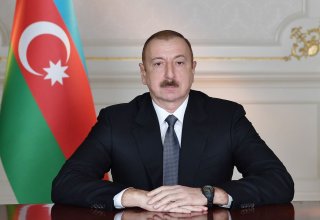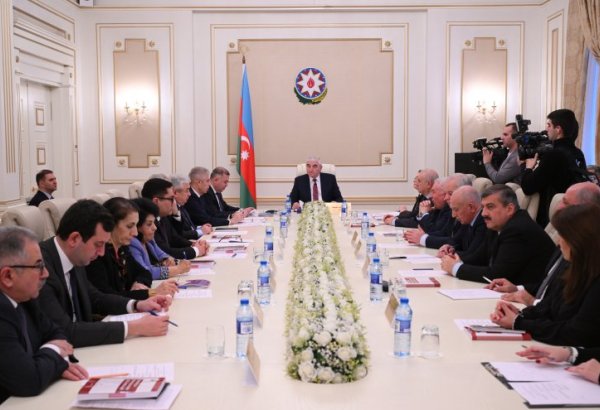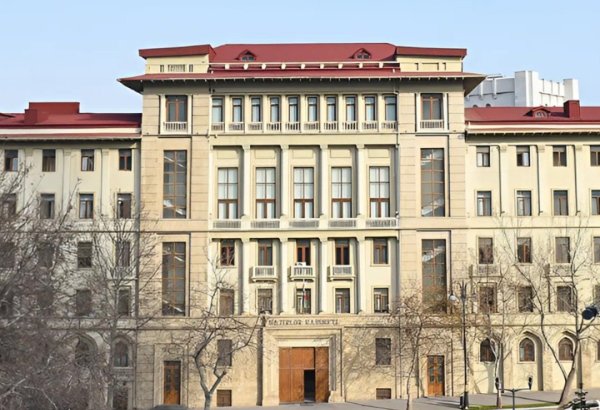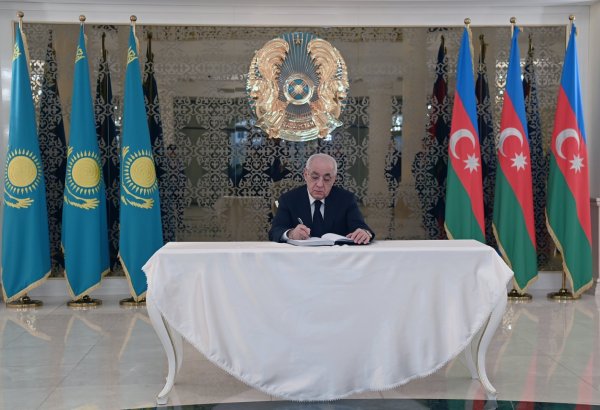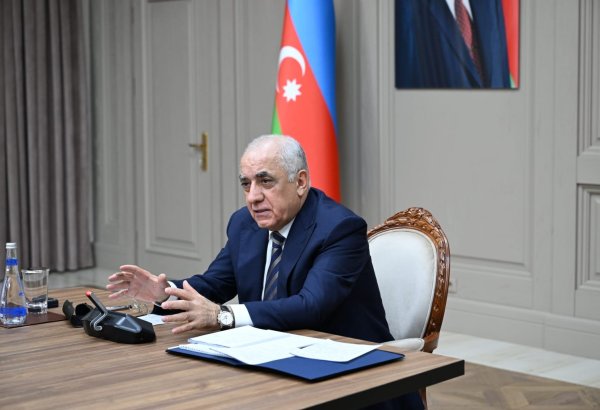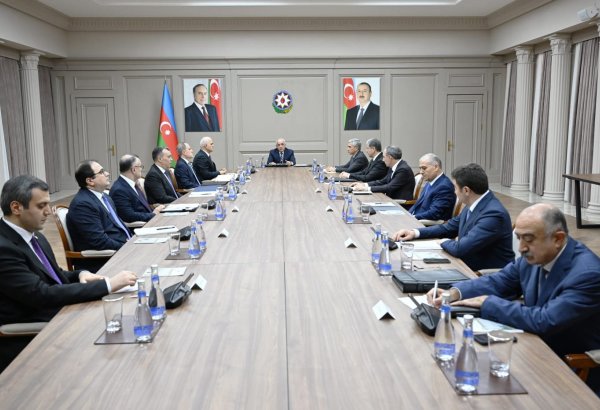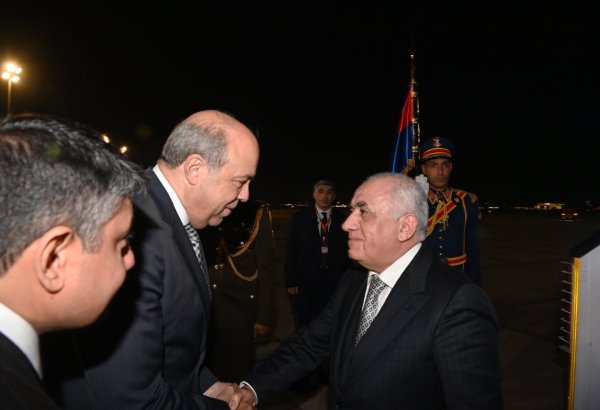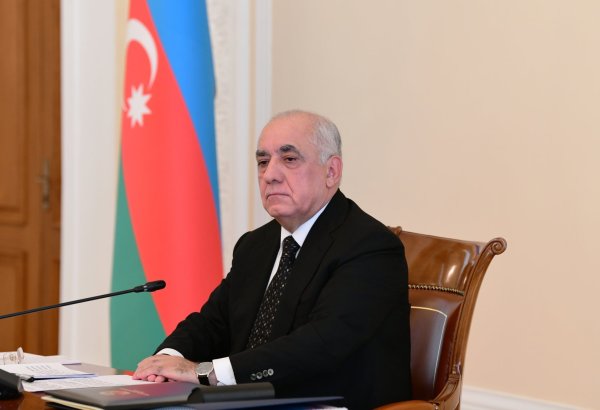BAKU, Azerbaijan, May 10. Heydar Aliyev ensured a favorable international context for the security of independent Azerbaijan, the country's Prime Minister Ali Asadov said in an interview with 'Azerbaijan' newspaper, TurkicWorld reports.
"Heydar Aliyev's strategy for building a national, independent state in Azerbaijan has stood the test of time and proven itself. Heydar Aliyev led Azerbaijan in two different socio-political formations, demonstrating unprecedented dedication to the interests of the native people, glorifying and elevating the authority of our country.
Under Soviet rule, the great leader, by emphasizing the strengthening of the sense of national pride and the rise of national self-awareness as the driving force of vigorous development in all spheres of socio-economic and cultural life, was able to set it in motion.
The real business climate established in the republic during that period, a healthy moral-psychological atmosphere based on social justice, allowed us to achieve a high level of economic progress, win special authority for Azerbaijan at the post-Soviet level, and even gain international recognition.
We can confidently say that our current political and economic independence, our country's integration into the system of international relations, and the global economy are based on the potential laid down by Heydar Aliyev in the seventies and eighties of the last century," the prime minister said.
He mentioned that during the period of Azerbaijan's independence, the specific line of internal and external policies, as well as economic reforms initiated by the great leader, justifies itself today and will do so in the future.
"Heydar Aliyev's idea of Azerbaijanihood has ensured social stability, national unity, and the solidarity of the people and the government in the country. His foreign policy principles were able to guide the country through international contradictions in the most difficult times.
Establishing relations with various centers of economic and political power in line with national interests, promoting our country as a space for cooperation rather than global conflicts, protected Azerbaijan from devastating blows during the most difficult period of modern history.
The period from 1988 through 1993, when Heydar Aliyev was out of political power, was the hardest for our country and our people. Armenia's aggression caused a deep crisis in both domestic and foreign policy, as well as in the economy and military sphere. Returning to political power, the great leader prevented the expansion of the three components of the general crisis - domestic political, foreign political, and military - from 1993 through 1995.
He established internal stability in the country and began to restore foreign relations.
He not only managed to prevent the deepening of the military crisis, but also, in early 1994, a successful counteroffensive operation was carried out, during which 21 villages and Horadiz settlement, Fuzuli district, as well as Jojug Marjanli village, Jabrayil district, were liberated from Armenian occupation.
The first military victory was achieved, and shortly thereafter, an agreement on a ceasefire was signed, allowing Azerbaijan to mobilize and providing an opportunity to gather strength to begin building a modern army. By overcoming the three components of the general crisis, we also halted the deepening of the economic crisis and laid the foundations for a sustainable economic revival through radical reforms, Asadov added.
Today marks the birthday of Azerbaijan's National Leader Heydar Aliyev.
Heydar Aliyev was born on May 10, 1923, in the city of Nakhchivan, Azerbaijan. After completing his studies at the Nakhchivan Pedagogical College in 1939, Heydar Aliyev enrolled in the Architecture Department at the Azerbaijan Industrial Institute, now known as the State Oil Academy, only to have his studies hampered by World War Two.
Heydar Aliyev began his career in 1941 as the Chief of Division at the People's Commissariat for Internal Affairs and the Council of People's Commissars in the Autonomous Republic of Nakhchivan. In 1944, he gained admission to the state security agencies. With special higher education and training courses in Moscow and Leningrad (now St. Petersburg), Heydar Aliyev also graduated from the History Department of Azerbaijan State University in 1957. With 25 years of experience in the state security agencies, he was appointed as the Deputy Chairman of the Committee for the State Security at the Cabinet of Ministers of the Soviet Socialist Republic of Azerbaijan in 1964 and promoted to the position of the CSS Chairman in 1967 with the Major General rank conferred in the same year.
Following elections at the Plenary Session of the Central Committee of the Azerbaijani Communist Party in July 1969, Heydar Aliyev was elected the Chairman of the Central Committee, thus becoming the leader of Azerbaijan.
An alternate member of the Political Bureau (Politburo) of the Central Committee of the Communist Party of the Soviet Union (the top political elite of the day) since 1976, He was elected a Politburo member in December 1982 and appointed to the position of First Deputy Chairman of the Cabinet of Ministers of the USSR. In this capacity, he was actively involved in vital areas of the country’s economic, social, and cultural life.
A member of the Supreme Soviet (the highest legislative body) of the USSR and the Soviet Socialist Republic of Azerbaijan for more than 20 years, Heydar Aliyev had been holding the position of Deputy Chairman of the USSR Cabinet of Ministers for the five following years.








